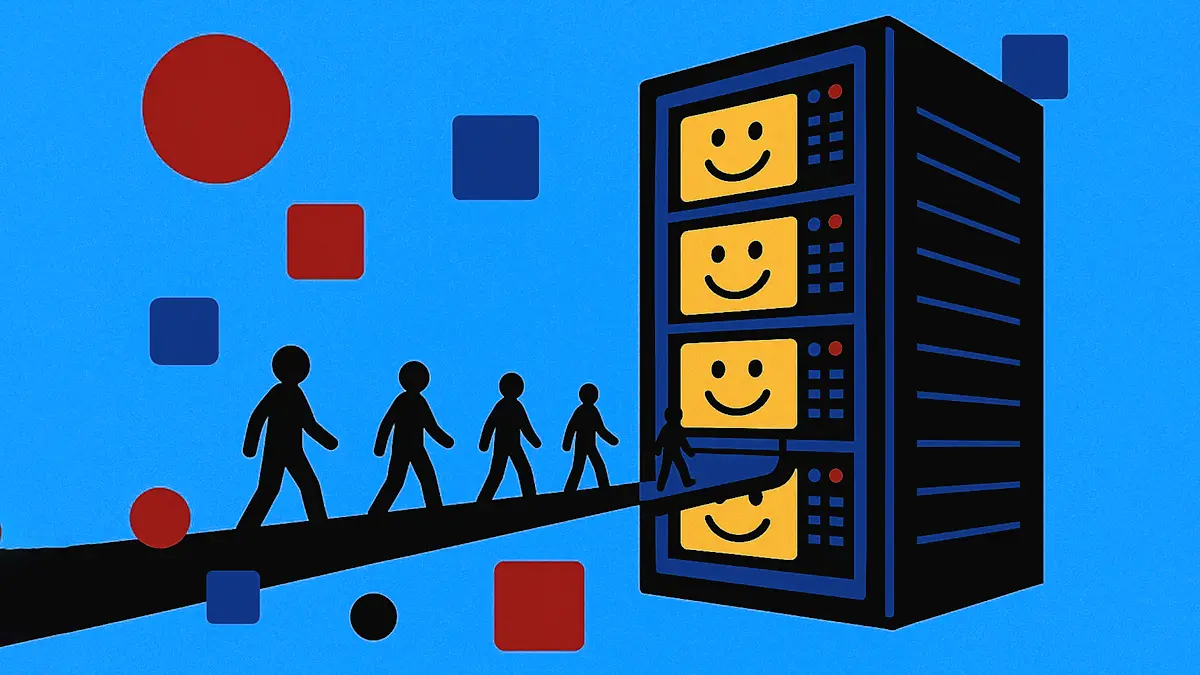Customer service is evolving rapidly, and the introduction of AI has been nothing short of revolutionary. Automating support workflows with AI not only enhances efficiency but also significantly improves customer satisfaction. Let’s dive into how this transformation is changing the game for businesses and customers alike.
What is AI Workflow Automation?
At its core, AI workflow automation involves integrating artificial intelligence with existing business processes to handle complex tasks efficiently. Tasks that once required long hours, such as sifting through customer inquiries or scheduling appointments, can now be managed by AI. This frees up human resources to focus on more strategic and engaging activities, ultimately enhancing the overall efficiency and effectiveness of the customer service team.
Key Components of AI Workflow Automation
- Algorithms: These are the core of AI systems, enabling them to learn and improve over time. They can handle tasks that were once too time-consuming or intricate for manual processes, such as analyzing customer sentiment from written feedback or predicting future trends based on historical data.
- Data: The effectiveness of AI systems is heavily dependent on the quality and quantity of data they receive. This data, which can range from numerical figures to text from social media posts, provides the raw material that AI systems use to make decisions.
- Integration: Seamlessly integrating AI tools with existing business systems is crucial for maximizing the benefits of automation. This integration ensures that data flows smoothly between systems, enabling AI tools to operate effectively and provide real-time insights.
Benefits of Automating Support Workflows with AI
Enhanced Efficiency and Productivity
One of the most immediate benefits of automating support workflows with AI is the significant boost in efficiency. In my previous role, I recall how our team would spend countless hours manually sorting through emails and chat logs, which was not only time-consuming but also prone to errors. With AI, these processes are streamlined, allowing for quicker responses and freeing up time for the team to tackle more complex issues. Imagine a scenario where a chatbot handles routine inquiries while human agents focus on unique or challenging problems—this not only enhances productivity but also improves the quality of customer interactions.
Improved Decision-Making
AI’s ability to analyze vast amounts of data enables it to provide valuable insights that can guide decision-making processes. For instance, by analyzing customer feedback, AI can identify common pain points or emerging trends, allowing businesses to make proactive improvements. This data-driven approach ensures that decisions are based on comprehensive and up-to-date information, rather than just intuition or anecdotal evidence.
Cost Savings and ROI
The financial benefits of automating support workflows with AI are substantial. Initially, the investment in AI technology might seem high, but the long-term savings are significant. AI systems can handle tasks that would otherwise require a large support team, reducing payroll costs. Moreover, the reduction in errors and the efficiency gains lead to additional cost savings. For example, automated data entry and processing minimize the risk of costly mistakes, and predictive maintenance can prevent expensive equipment failures.
Faster Response Times
In the era of instant gratification, customers expect swift responses to their inquiries. AI-powered chatbots and virtual assistants can provide 24/7 support, handling routine questions and directing more complex issues to human agents. This not only ensures that customers receive timely assistance but also enhances their overall experience by reducing wait times.
Types of AI Workflow Automation
Predictive Analytics Automation
Predictive analytics involves using historical data to forecast future outcomes. In the context of customer service, this can mean predicting customer needs or potential issues before they arise. For example, if a particular product consistently receives a specific type of complaint, predictive analytics can help identify this trend early on, allowing for preemptive measures to address the problem.
Cognitive Automation
Cognitive automation goes beyond simple data analysis by mimicking human thought processes. This type of AI can analyze complex scenarios and make decisions based on a combination of data and contextual understanding. It is particularly useful in customer service situations where understanding nuance and intent is crucial.
Rules-Based Automation
Rules-based automation involves setting predefined rules for handling specific tasks. This type of automation is often used for straightforward, repetitive tasks such as data entry or processing standard customer service requests. While it may not be as sophisticated as cognitive automation, it is highly effective in reducing the workload for human agents and minimizing the risk of errors.
How to Implement AI Workflow Automation
Identifying Automation Opportunities
The first step in implementing AI workflow automation is to identify which tasks are suitable for automation. In one of my previous roles, we began by automating our ticketing system. This simple change had a significant impact, freeing up valuable time and resources that could be redirected to more critical tasks. To determine the best opportunities for automation, consider tasks that are repetitive, time-consuming, or prone to error.
Choosing the Right Tools
Selecting the right AI tools is crucial for successful implementation. It’s important to choose tools that are compatible with your existing systems and that meet your specific business needs. Look for solutions that offer robust integration capabilities, scalability, and user-friendly interfaces. Many providers offer free trials, which can be invaluable in testing the tool’s effectiveness before committing to a purchase.
Integration with Existing Systems
Successfully integrating AI with your existing systems requires careful planning and execution. This process involves more than just installing new software; it requires a comprehensive strategy that includes staff training and gradual implementation. Start with less critical areas to minimize risks, and gather feedback at each stage to ensure the transition is smooth and the system is functioning as expected.
Training and Change Management
Introducing AI into your organization represents a significant change, and it’s essential to manage this transition carefully. Invest in training programs to ensure that your staff understands how to use the new tools effectively. Encourage a culture of continuous learning and adaptation, and provide resources to support this, such as online courses or workshops.
Overcoming Challenges in AI Workflow Automation
Data Quality and Availability
One of the biggest challenges in implementing AI workflow automation is ensuring the quality and availability of data. Poor-quality data can lead to inaccurate or biased results, undermining the effectiveness of the AI system. To address this, establish robust data management practices, including regular data audits and quality checks, and ensure that your data sources are diverse and representative.
Skilled Talent Shortage
There is a growing demand for professionals with expertise in AI and data science, and finding the right talent can be challenging. To bridge this gap, consider upskilling your current team members or partnering with external experts. Offering ongoing training and development opportunities can also help retain skilled employees and keep your team up-to-date with the latest advancements in AI technology.
Integration Complexity
Integrating AI systems with existing software can be complex, especially if your organization uses a variety of platforms. To navigate this, prioritize tools with strong integration capabilities and start with simpler systems. This approach allows you to build confidence and experience before tackling more complex integrations.
Best Practices for Maximizing AI Workflow Automation Benefits
Continuous Learning and Adaptation
The field of AI is constantly evolving, and staying up-to-date with the latest developments is crucial. Regular training sessions, workshops, and access to online resources can help your team maintain a high level of expertise. Encourage a culture of continuous learning and adaptation to keep pace with the rapid advancements in AI technology.
Monitoring and Evaluation
Setting clear metrics to measure the success of your AI implementation is essential. These metrics could include response times, customer satisfaction scores, and cost savings. Regularly reviewing these metrics helps identify areas for improvement and ensures that your AI systems continue to align with your business goals.
Ethical Considerations
As with any technology, ethical considerations are important when implementing AI systems. Ensure that your AI tools are transparent, fair, and respect customer privacy. This not only builds trust with your customers but also helps safeguard your brand reputation.
Automating support workflows with AI is no longer a luxury—it’s a necessity in today’s competitive landscape. From enhancing efficiency to improving customer satisfaction, the benefits are substantial. By carefully implementing and continually refining these systems, businesses can stay ahead of the curve and deliver exceptional customer service.











